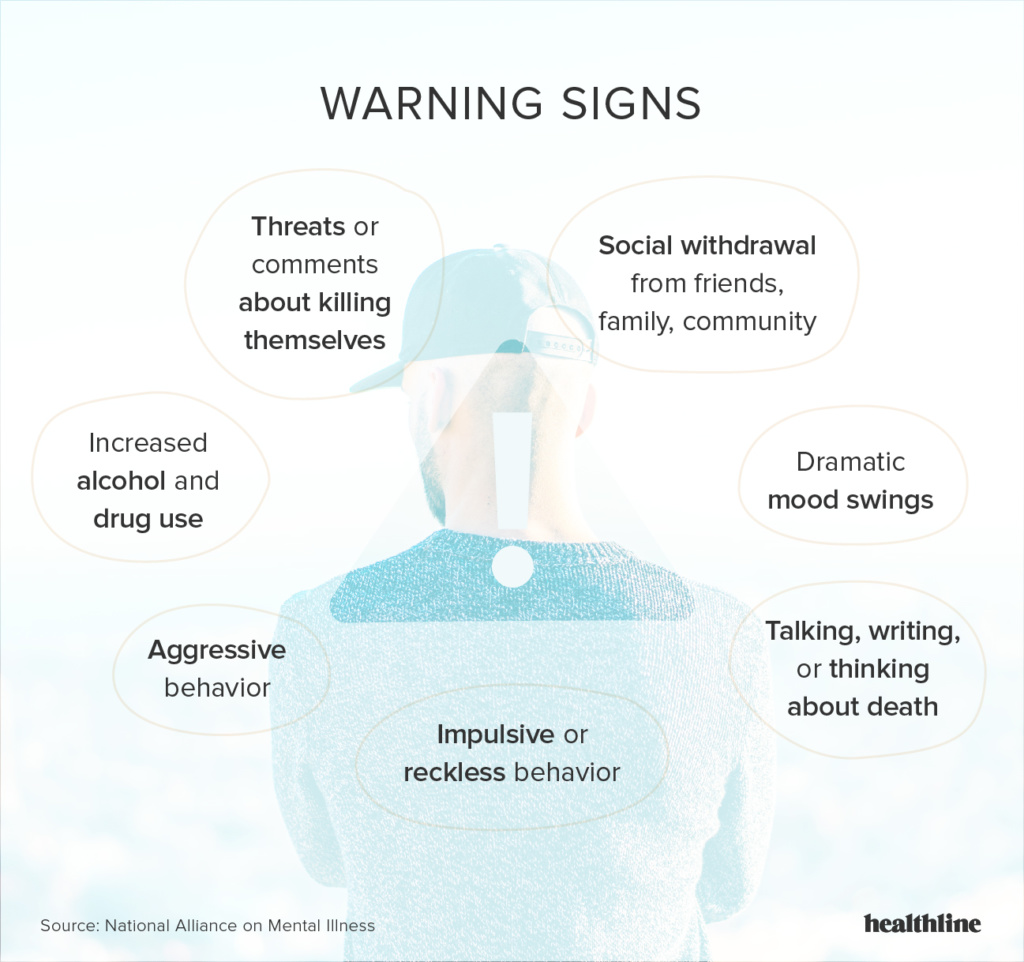
What is suicide and suicidal behavior?
Suicide is the act of taking one’s own life. According to the American Foundation for Suicide Prevention, suicide is the 10th leading cause of death in the United States, taking the lives of approximately 47,000 Americans each year.
Suicidal behavior refers to talking about or taking actions related to ending one’s own life. Suicidal thoughts and behaviors should be considered a psychiatric emergency.
If you or someone you know is exhibiting either, you should seek immediate assistance from a healthcare provider.
Warning signs that someone may attempt suicide
You can’t see what a person is feeling on the inside, so it isn’t always easy to identify when someone is having suicidal thoughts. However, some outward warning signs that a person may be contemplating suicide include:
- talking about feeling hopeless, trapped, or alone
- saying they have no reason to go on living
- making a will or giving away personal possessions
- searching for a means of doing personal harm, such as buying a gun
- sleeping too much or too little
- eating too little or eating too much, resulting in significant weight gain or loss
- engaging in reckless behaviors, including excessive alcohol or drug consumption
- avoiding social interactions with others
- expressing rage or intentions to seek revenge
- showing signs of extreme anxiousness or agitation
- having dramatic mood swings
- talking about suicide as a way out
It can feel scary, but taking action and getting someone the help they need may help prevent a suicide attempt or death.
How to talk to someone who is feeling suicidal
If you suspect that a family member or friend may be considering suicide, talk to them about your concerns. You can begin the conversation by asking questions in a non-judgmental and non-confrontational way.
Talk openly and don’t be afraid to ask direct questions, such as “Are you thinking about suicide?”
During the conversation, make sure you:
- stay calm and speak in a reassuring tone
- acknowledge that their feelings are legitimate
- offer support and encouragement
- tell them that help is available and that they can feel better with treatment
Make sure not to minimize their problems or attempts at shaming them into changing their mind. Listening and showing your support is the best way to help them. You can also encourage them to seek help from a professional.
Offer to help them find a healthcare provider, make a phone call, or go with them to their first appointment.
It can be frightening when someone you care about shows suicidal signs. But it’s critical to take action if you’re in a position to help. Starting a conversation to try to help save a life is a risk worth taking.
If you’re concerned and don’t know what to do, you can get help from a crisis or suicide prevention hotline.
If you live in the United States, try the National Suicide Prevention Lifeline at 800-273-TALK (800-273-8255). They have trained counselors available 24/7. Stop a Suicide Today is another helpful resource.
Befrienders Worldwide and the International Association for Suicide Prevention are two organizations that provide contact information for crisis centers outside of the United States.

Recent Comments